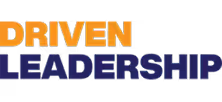Female Leadership Training in Long Beach, CA


Leadership Training Female Leadership Training in Long Beach, CA
Why female-focused leadership training matters in Long Beach
Long Beach is a dynamic, diverse city with major industries ranging from the Port of Long Beach and marine logistics to healthcare, higher education, hospitality, and a growing creative and tech scene. That diversity creates opportunity — and distinct challenges for women progressing into senior roles. Female leadership training in Long Beach, CA helps organizations address stubborn gaps in promotion, sponsorship, confidence, and retention by delivering tailored development that aligns with local workforce realities: high competition from the broader Los Angeles market, rising cost of living, and the need to engage talent who value equity and purpose.
This training is designed for women who are poised to lead but need targeted support to overcome barriers unique to them. It combines behavioral skill-building, sponsorship strategies, experiential practice, and organizational alignment to produce measurable movement in career trajectory and team performance.
Common female leadership issues in Long Beach organizations
- Confidence gaps that show up as hesitation in negotiating scope, salary, or visibility with executives.
- Limited access to sponsors who actively advocate for stretch assignments, promotions, and succession planning.
- Career progression stalls caused by unclear role pathways or biased performance evaluation criteria.
- Work-life integration pressure in a coastal city where long commutes and shifting shift work (hospitality, logistics) impact availability.
- Retention risks as talented women are recruited to Los Angeles or remote-first employers offering higher pay or more inclusive culture.
Understanding these patterns informs a curriculum that addresses both individual capability and the organizational systems that must change.
Program types and formats available
- Intensive cohort programs (8-12 weeks) for mid-level women ready to step into senior leadership.
- Short focused workshops (full-day or half-day) on negotiation, executive presence, and sponsorship activation.
- Hybrid formats that combine in-person sessions in Long Beach with online modules for flexible learning.
- Executive coaching and sponsor engagement programs that pair a rising leader with a senior ally.
- Enterprise-wide tracks that integrate female leadership development into talent pipelines and succession planning.
Each format is tailored to organizational goals — whether the priority is accelerating promotion-ready talent, reducing turnover, or building more equitable leadership representation.
Curriculum highlights: what participants learn
- Confidence and presence: Practical techniques for public speaking, meeting ownership, and executive storytelling.
- Sponsorship activation: How to identify, cultivate, and leverage sponsors; creating sponsor plans that produce assignments and promotions.
- Strategic career planning: Building a map of stretch roles, KPIs, and visibility tactics tuned to Long Beach’s job market.
- Negotiation and compensation strategy: Role-play and frameworks to secure equitable pay and resources.
- Inclusive leadership and systems change: Tools for influencing policy, performance metrics, and hiring practices that remove bias.
- Resilience and boundary setting: Managing workloads, commute stress, and role demands common to Port, hospitality, and healthcare sectors.
- Business acumen and stakeholder influence: Translating functional expertise into enterprise-level impact.
Learning is experiential: real case studies, simulation labs, live feedback, and project-based work tied to participants’ current roles.
Mentorship and peer-cohort components
Mentorship and cohort learning are core to lasting progress. Typical elements include:
- Peer cohorts of 10-16 women for persistent accountability, feedback, and network-building.
- Cross-level sponsorship pairings that connect participants with senior leaders who commit to advocacy.
- Monthly peer coaching circles that practice real scenarios and track career actions.
- Local alumni networks in Long Beach to sustain relationships and surface internal opportunities.
These structures create a supportive ecosystem that turns individual learning into career advancement and cultural change.
Diagnostic approach and program delivery process
Effective programs begin with diagnosis:
- Talent diagnostics: Using assessments to benchmark leadership competencies, promotional readiness, and engagement.
- Stakeholder alignment: Interviews with HR and executive sponsors to define success metrics and organizational barriers.
- Custom design: Curriculum and projects tailored to industry specifics — for example, scheduling flexibility for healthcare staff or negotiation scenarios for logistics managers.
- Delivery: A mix of experiential workshops, coaching, and applied project work, delivered either on-site in Long Beach or via blended learning.
- Measurement and follow-up: Progress reviews at 3, 6, and 12 months to quantify promotions, sponsor activations, retention, and representation metrics.
Programs routinely integrate business-relevant deliverables so leaders practice skills on work that matters to their organization.
Measuring success and business outcomes
Outcomes commonly tracked for female leadership programs:
- Promotion rate for program participants within 6-12 months.
- Sponsor commitments and documented sponsor actions.
- Retention improvement among high-potential women.
- Increases in representation of women in manager and director roles.
- Improvements in employee engagement and inclusion scores for teams led by program graduates.
Organizations that link training to measurable KPIs see better buy-in from executives and a clearer return on investment in diversity and leadership development.
Supporting equity and retention in Long Beach
Tailored female leadership training supports equity by addressing both individual and systemic barriers. In Long Beach, programs often focus on:
- Closing opportunity gaps in sectors like maritime, logistics, and construction where women are underrepresented.
- Creating flexible learning paths for shift-based workers in healthcare and hospitality.
- Partnering with local universities and professional networks to expand the pipeline for women of diverse backgrounds.
When organizations invest in structured sponsorship and visible career pathways, retention improves because employees see tangible prospects for advancement without leaving the city.
Ongoing development and maintaining gains
Leadership growth is continuous. Recommended practices after program completion:
- Quarterly sponsor reviews to ensure active advocacy continues.
- Ongoing peer coaching circles and periodic refresh workshops.
- Integrating alumni into talent review and succession planning.
- Data-driven check-ins with HR to monitor promotion and retention trends.
These maintenance practices embed new behaviors into organizational processes and keep the momentum for equity and leadership diversity.
Final note on impact
Female leadership training in Long Beach, CA delivers more than individual advancement. It strengthens leadership pipelines, increases organizational resilience, reduces costly turnover, and builds inclusive cultures that reflect the city’s diversity. For organizations committed to equitable growth, a targeted program for women produces measurable results in representation, engagement, and business performance while supporting women leaders to claim the roles they are qualified to hold.

